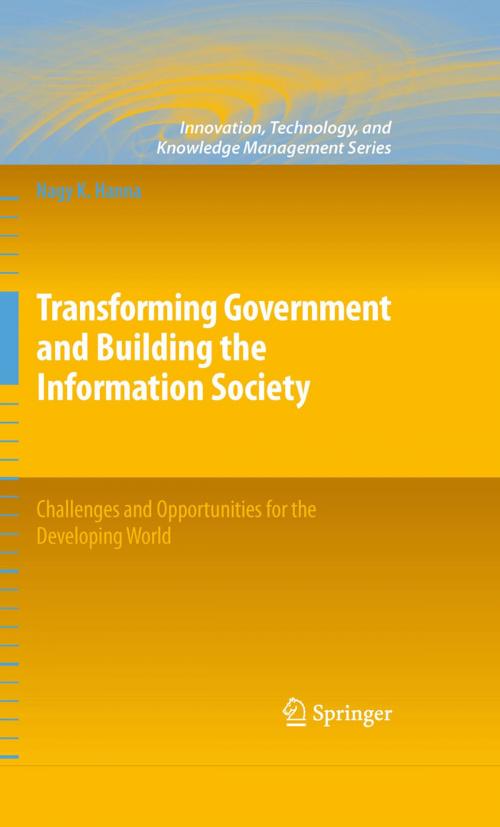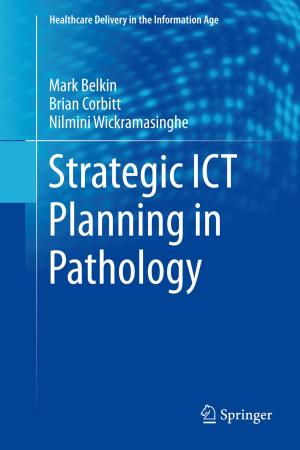Transforming Government and Building the Information Society
Challenges and Opportunities for the Developing World
Business & Finance, Economics, Public Finance, Economic Development| Author: | Nagy K. Hanna | ISBN: | 9781441915061 |
| Publisher: | Springer New York | Publication: | March 20, 2010 |
| Imprint: | Springer | Language: | English |
| Author: | Nagy K. Hanna |
| ISBN: | 9781441915061 |
| Publisher: | Springer New York |
| Publication: | March 20, 2010 |
| Imprint: | Springer |
| Language: | English |
Information and communication technology (ICT) is central to reforming governance, innovating public services, and building inclusive information societies. Countries are learning to weave ICT into their strategies for transforming government as enterprises have learned to use ICT to innovate and transform their processes and competitive strategies. ICT-enabled transformation offers a new path to digital-era government that is responsive to the challenges of our time. It facilitates innovation, partnering, knowledge sharing, community organizing, local monitoring, accelerated learning, and participatory development.
In Transforming Government and Building the Information Society, Nagy Hanna draws on multi-disciplinary research on ICT in the public sector, and on his rich experience of over 35 years at the World Bank and other aid agencies, to identify the key ingredients for the strategic integration of ICT into governance and poverty reduction strategies. The author showcases promising practices from around the world to outline the strategic options involved in using ICT to maximize developmental impact—transforming government institutions and public services, and empowering communities for inclusion and grassroots innovation.
Despite the ICT promise, Hanna acknowledges that reforming governance and empowering poor communities are difficult long-term undertakings. Hanna moves beyond the imperatives and visions of e-transformation to strategic design and implementation options, and draws practical lessons for policymakers, reformers, innovators, community leaders, ICT specialists and development experts.
Information and communication technology (ICT) is central to reforming governance, innovating public services, and building inclusive information societies. Countries are learning to weave ICT into their strategies for transforming government as enterprises have learned to use ICT to innovate and transform their processes and competitive strategies. ICT-enabled transformation offers a new path to digital-era government that is responsive to the challenges of our time. It facilitates innovation, partnering, knowledge sharing, community organizing, local monitoring, accelerated learning, and participatory development.
In Transforming Government and Building the Information Society, Nagy Hanna draws on multi-disciplinary research on ICT in the public sector, and on his rich experience of over 35 years at the World Bank and other aid agencies, to identify the key ingredients for the strategic integration of ICT into governance and poverty reduction strategies. The author showcases promising practices from around the world to outline the strategic options involved in using ICT to maximize developmental impact—transforming government institutions and public services, and empowering communities for inclusion and grassroots innovation.
Despite the ICT promise, Hanna acknowledges that reforming governance and empowering poor communities are difficult long-term undertakings. Hanna moves beyond the imperatives and visions of e-transformation to strategic design and implementation options, and draws practical lessons for policymakers, reformers, innovators, community leaders, ICT specialists and development experts.















